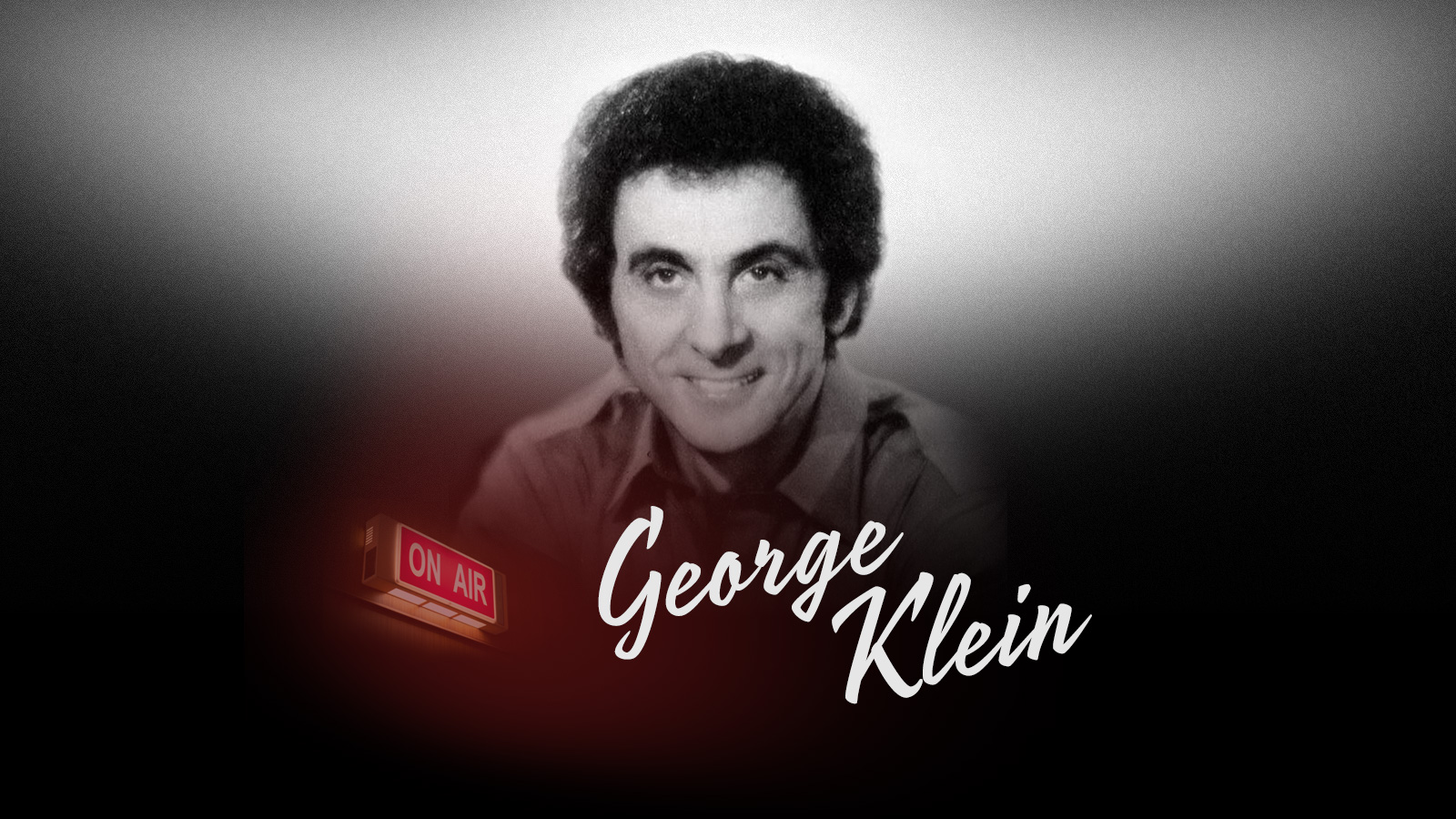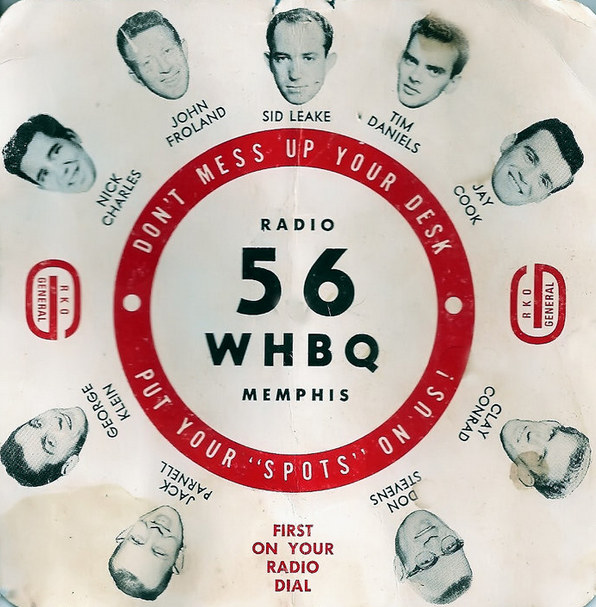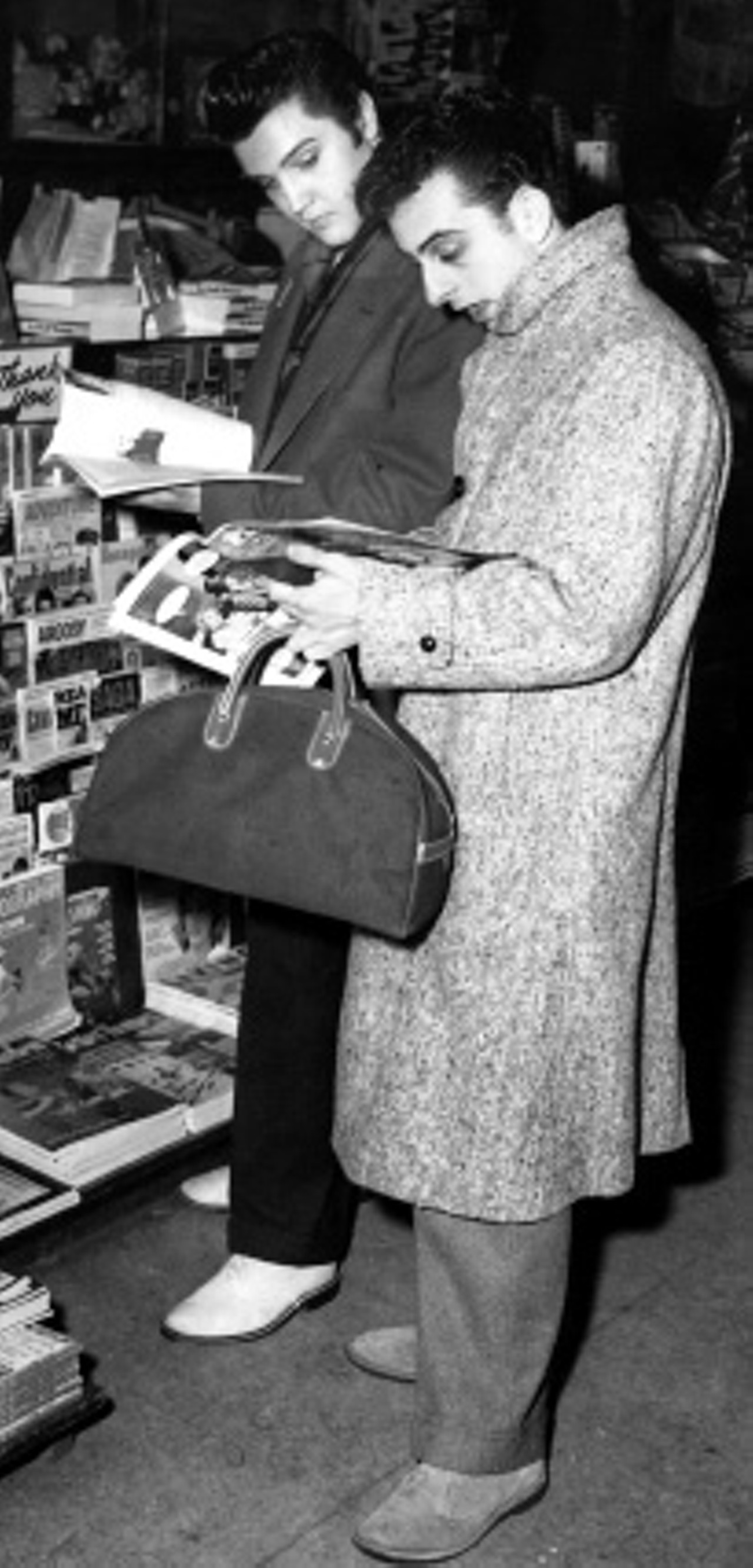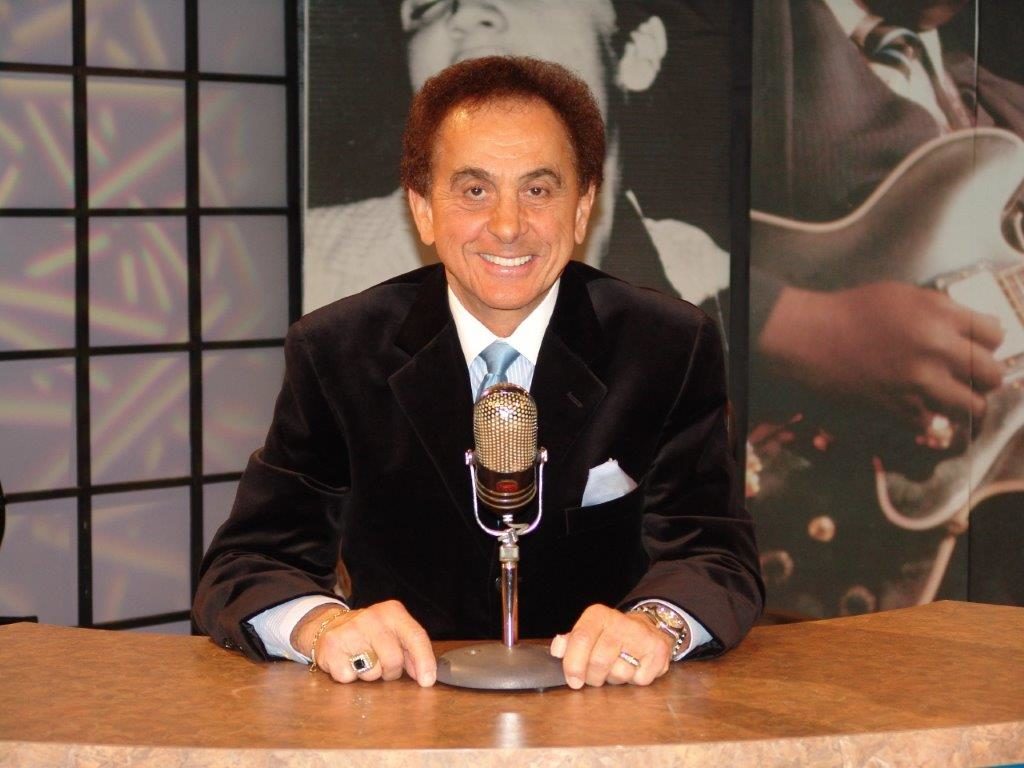


George Klein, who was born in Memphis in 1935, seemed destined for a life in the music business from a young age. As a boy, he would daydream about a life in showbiz while listening to his favorite station, aware even then that he was in possession of a special trait: a voice made for radio. During an eighth grade music class, he befriended a classmate named Elvis Presley, who was already showing flourishes of greatness. “He was very good for a 12-year-old,” Klein recalled later. “That’s what impressed me. I had never seen a 12-year-old bring a guitar to school and sing… I thought he was pretty good.” Despite their closeness, nobody could have predicted the mythical friendship that would develop over the subsequent years.
In the 1950s, Klein began his storied radio career under yet another early icon of rock ‘n’ roll, the larger-than-life disc jockey Dewey Phillips. Phillips, of course, was the first person to ever play an Elvis Presley song on the radio, and his understudy George Klein became the second. A few months later, Klein was able to garner a significant milestone of his own when he became the first deejay to ever spin a Johnny Cash record on air. “I thought he had a real style. He already had a sound all his own, which is what everybody was after back then. That impressed me,” Klein said of his first encounter with Cash.

Over the next couple of years as he finished college, Klein used his various radio shows to become one of the nation’s most important promoters of rock ‘n’ roll. On occasion, he would even run into his old friend Elvis at the radio station or at various social gatherings, often being one of the first people to get the opportunity to hear his friend’s new music. In 1957, just as rock ‘n’ roll was emerging as a cultural phenomenon, Klein received a fateful call from his employer. In Klein’s words, he was told by the station “George, we don’t think rock ‘n’ roll is going to last. It’s a passing fad. It’s like calypso, the tango and the mambo.” Within the week, he was out of a job.
Soon after, Klein was hanging out with Dewey Phillips when he bumped into Elvis. In an interview with Travels and Stories, Klein recalled: “I said, ‘Elvis, I just got fired…they said rock ‘n’ roll wasn’t going to last.’ He said, ‘I’m hiring you. We’re going on a big Northwest tour.’” Just like that, Klein was on board for one of the wildest rides in music history. Over the next year, Klein traveled across the nation alongside Elvis, serving as a firsthand witness to a cultural revolution. The tour included a stop in Hollywood to shoot the film “Jailhouse Rock,” in which Klein made a brief appearance. When Elvis was drafted and deployed to Germany, the journey finally came to an end. Klein returned to radio in Memphis, securing a job at WHBQ as the host of George Klein’s Rock ‘n’ Roll Ballroom. As the show’s popularity grew, so did G.K.’s opportunities. In 1964, he became the host of Talent Party, a struggling TV program in the vein of The Tonight Show. He immediately set about retooling the show, wisely choosing to put more focus on music. “I said with Stax Records happening, with American Records happening, Sun Records still happening, and Hi Records happening with Al Green and everything, we can get all this talent,” he recalled.



Under Klein’s direction and vision, Talent Party quickly became a local phenomenon and an important springboard for many of the city’s up-and-coming bands. As musician Randy Haspel wrote in the Memphis Flyer, “In essence, G.K. was responsible for the whole ‘60s garage-band scene which ultimately produced some of Memphis’ most notable entertainers.” Klein was also responsible for desegregating the local airwaves, arranging for Fats Domino to become the first Black artist to perform live on local television. Over the next 12 years, Klein would host everyone from established stars like James Brown to emerging local talent like the Gentrys.
Despite the success of Talent Party, Klein continued to produce his radio program, which remained one of the hottest in the city. Additionally, he also called TV wrestling matches, lent his voice to various local drive-ins, and was selected to introduce the Beatles at their storied 1966 concert in Memphis. All the while, G.K. remained a close friend and confidant to Elvis, especially as The King’s career began slipping into a slow decline. “It’s hard to tell a superstar what to do,” Klein said. “But it wasn’t hard for me to speak to him honestly because we’d been buddies since high school.” One particularly solid piece of advice was Klein’s suggestion that Presley come home to Memphis and record at American Studios. That session produced the classic single “Suspicious Minds,” a pivotal moment in Presley’s later career.

As he juggled his many professional and personal obligations, Klein also made time for altruistic endeavors. In 1963, he began the annual George Klein Christmas Charity Show, a fundraising event that featured major musical acts with proceeds donated to local charities. The show was held annually for forty years and holds the title as the longest running benefit show in Memphis history. Years later, Klein would establish a scholarship fund for aspiring broadcasters at his alma mater, helping promising young talents with critical college funding.
In the 1970s, Klein and the other members of the “Memphis Mafia” began to grow concerned about their friend Elvis Presley. Despite the best efforts of Klein and others to intervene, Elvis died unexpectedly in 1977 at the age of 42. Predictably, the death deeply affected Klein. “I had never been a particularly Orthodox Jew, but after Elvis died, I followed the Jewish tradition of yahrzeit – a year of mourning marked with daily morning and evening prayers,” he recounted to The Jewish Chronicle. Nearly a decade later, Klein was asked by Priscilla and Lisa Marie Presley to accept Elvis’ award for his induction into the Rock and Roll Hall of Fame. “That was probably the highlight of my career connected with Elvis, and that made the loss a lot easier,” he later said.



In 1984, Klein began hosting “George Klein’s Original Elvis Hour” on radio station WMC, which aired for the next 34 years. In 2004, he also joined SiriusXM satellite radio to host a program dedicated entirely to Elvis’ music. That same year, G.K. returned to TV with his show “Memphis Sounds with George Klein” on the Memphis Public Radio station WYPL, where he’s interviewed such Memphis legends as Isaac Hayes, Justin Timberlake, and Jim Dickinson. For years, Klein would sign off of his radio program with the line “The sun never sets on a legend” as a tribute to his friend Elvis, but with his death in 2019, the sentiment now applies equally to Klein himself.
Be the first to add your voice.